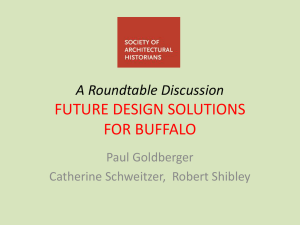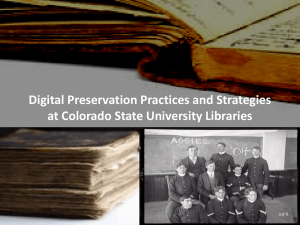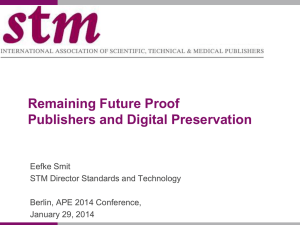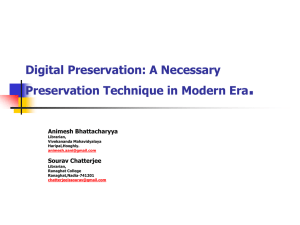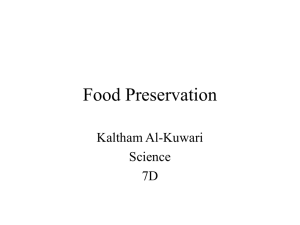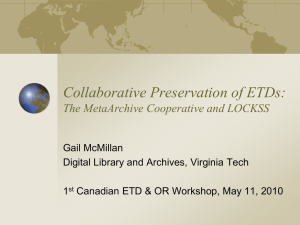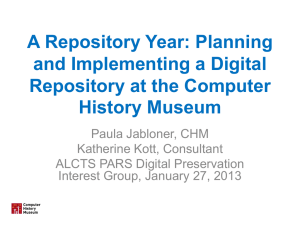HOW TO PRESERVE EVIDENTIARY ERROR FOR APPEAL Diane
advertisement
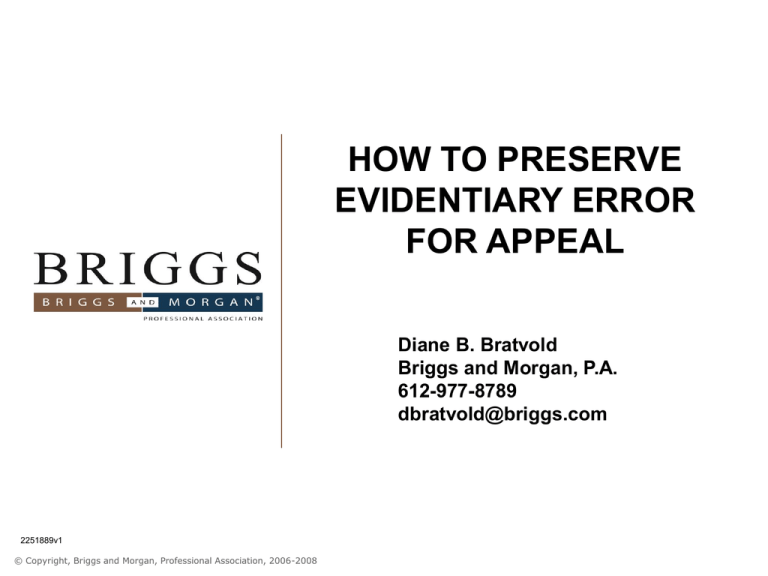
HOW TO PRESERVE EVIDENTIARY ERROR FOR APPEAL Diane B. Bratvold Briggs and Morgan, P.A. 612-977-8789 dbratvold@briggs.com 2251889v1 © Copyright, Briggs and Morgan, Professional Association, 2006-2008 OVERVIEW • Purpose of Evidentiary Rules • Error preservation What is error? How is it preserved for appeal? What are the strategic considerations? What about fundamental errors? Purpose of the Rules of Evidence, MRE 102 Paramount concerns: fairness and convenience Discretion of trial court Truth and justice: the goal; rules are not to be “worshipped as a fetish” Error Preservation: What is error? Must affect substantial rights of a party, MRE 103(a) Harmless error Case-by-case; civil versus criminal Thompson suggests -• Who has the burden of establishing the effect of the error? • What is the burden that must be proven? Error Preservation: Civil Cases Generally Burden on party claiming error Prejudicial error Record as a whole Limiting instructions Error Preservation: Criminal Cases Generally Federal constitutional rights Harmless error/reasonable doubt Is there any reasonable doubt the result would have been different if evidence had not been admitted? Non-constitutional error Error Preservation: Trial Admission or Exclusion of Evidence, MRE 103(a) Timely objection – the motion in limine Specific objection – don’t acquiesce Objection and ruling on the record: cardinal rule Motion for new trial The alternative is waiver Error Preservation: Trial Admission or Exclusion of Evidence Motion to strike Motion for limiting instruction, MRE 105 Exclusion of evidence requires offer of proof: on the record, outside jury’s presence, MRE 103(a)(2) & 103(c) Preservation of Error: Renewal of Objection The rule “Once the court makes a definitive ruling on the record admitting or excluding the evidence, either at or before trial, a party need not renew an objection or offer of proof to preserve a claim of error.” The cautious approach What is a definitive ruling? Any change during trial proceedings? Recent case law: State v. Word Error Preservation: More on Trial Jury instructions & verdict form: do the same thing, MRCP 51.03 Object on the record with reasons Submit alternate instructions/verdict form Get a ruling from the court Motion for new trial Error Preservation: Strategy for Best Record If it’s not in the record it didn’t happen Docket entries Pretrial conferences, hearings, side bar, chambers Letters to court Exhibits ruled on and filed with court Evidence on the monitor: slides, videotape depositions, etc. Have a court reporter present Put it in writing and file it Error Preservation: Strategy for Appellate Argument Preserve your story, not just the error Applies to all parties Background Illustrations Written or testimonial offers of proof Preserve legal error, not just evidentiary error Standard of review is better Post-trial motion for JMOL may be required Error Preservation: Summary Judgment Same rules apply Put it in the record Exhibits and testimony Tell your side of the case May need to present again post-trial Bahr v. Boise Cascade Corp., 766 N.W.2d 910 (Minn. 2009). Employee defamation suit Sufficiency of evidence of actual malice Error Preservation: Summary Judgment (cont.) “While under our rule the appellate court has the authority to review orders that “affect” the judgment being appealed, Minn. Civ. R. App. P. 103.04, a denial of a motion for summary judgment in a case such as this cannot be viewed as “affecting the judgment.” This is because the district court’s conclusion at the summary judgment stage that there was a genuine dispute of fact becomes moot once the jury reaches a verdict on that issue.” Bahr, 766 N.W.2d at 918. Error Preservation: Fundamental Errors, MRE 103(d) “Nothing in this rule precludes taking notice of errors in fundamental law or of plain errors affecting substantial rights although they were not brought to the attention of the court.” Goal: Fairness and judicial integrity Test: Plain error that affects substantial rights Other factors Don’t worry! That’s what appellate lawyers are for. Thank You dbratvold@briggs.com (612) 977-8789



